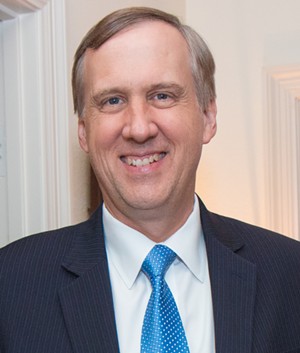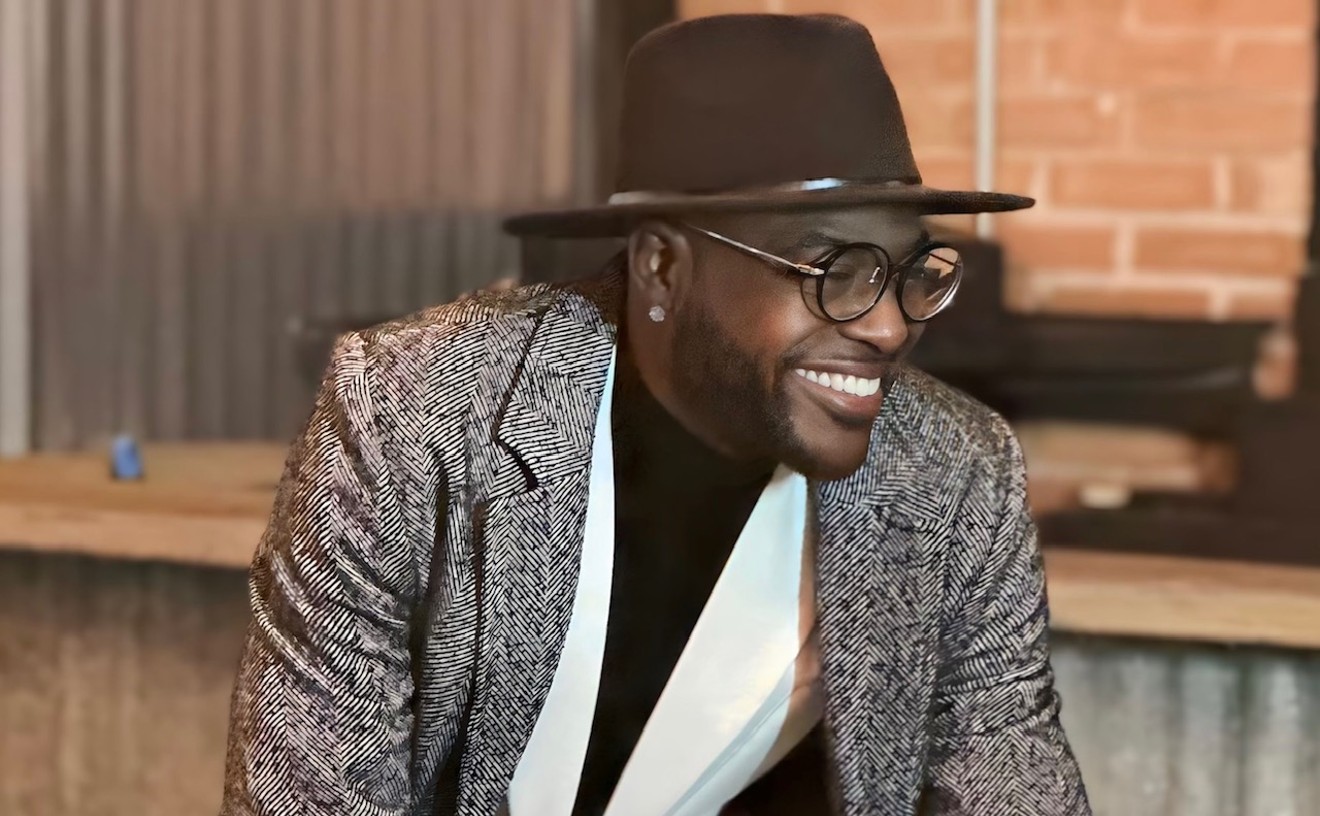The curtain rose on the saga when Cerny, the general director and CEO of The Dallas Opera since 2010, unexpectedly resigned in December 2017 — in the middle of the opera’s 2017-18 season — to become general director and CEO of the Calgary Opera the following month. The lightning-fast move to the smaller opera company in Alberta, Canada, raised eyebrows, in part because it came without any explanation by Cerny or The Dallas Opera. The latter, founded in 1957, presents five mainstage productions per season with a budget of more than $18 million, while the opera in Calgary has about a $4 million (U.S. dollars) budget and offers three mainstage shows.
According to insiders with The Dallas Opera, Cerny’s departure came at a time when the nonprofit organization was roughly $3 million behind in its annual fundraising effort and facing a shortage of cash. A longtime supporter of the opera and a member of its board of directors’ 14-member executive committee, Dr. Kern Wildenthal, was appointed the company’s interim general director and CEO, without pay, a week after Cerny resigned.
“When I looked over the books, it was obvious to me that we were behind in fundraising for the year and needed to cut costs,” Wildenthal recalls about what he found in late 2017. “We needed more philanthropic gifts in cash — not pledges. When we explained the situation to the directors, trustees and major donors, they responded with great generosity.”
One of them was Quincy Roberts, a member of the opera’s 74-member board of trustees, who act as ambassadors and donors for the opera and help elect the 64 directors.
“There was a cloud of shock among the board members and the employees, especially because Cerny was leaving in the middle of the season,” Roberts says. “The reports until he left were looking good. The budgets were balanced, and it was all good news that was coming. When he left, at the next board meeting, they presented that the financial information did not look like previous meetings. So there was definitely an air of, ‘Oh, wow!’”
Along with helping raise enough money in cash and pledges to finish the opera’s 2017-18 fiscal year with an operating surplus — the fiscal year runs from July 1 to the end of the following June — Wildenthal led an effort to cut costs for the current, 2018-19 opera season, which began last October with a production of The Flying Dutchman.
The interim leadership was able to save on much of Cerny’s salary — for the year ended June 2017 it had been $954,849, including $444,290 in deferred compensation, according to IRS filings — as well as those of several staffers who left the organization and were not immediately replaced. The interim leadership also slashed at least $1 million in expenses for two of the operas Cerny had scheduled for the 2018-19 season. For Dutchman, for example, Wildenthal and others saved money by deciding to rent the sets and costumes instead of creating them from scratch, as Cerny had planned. They also scrapped one scheduled opera, a five-hour production of Giacomo Meyerbeer’s L’Africaine, and replaced it with Giacomo Puccini’s Manon Lescaut, using the same singers who had been under contract for L’Africaine. Lescaut was less expensive and would sell better, they believed, because it was more accessible to general audiences. The Puccini opera will be performed on March 1, 3, 6 and 9.
The emergency need for such corrective measures was puzzling, opera board members say. That’s because the business-savvy Cerny, who’d lifted the opera out of a financial hole following the recession and innovated artistically over the years, previously worked as a consultant for McKinsey & Co. and Accenture, and had balanced the opera’s budget for five straight years. Says one member of the board of directors: “We wish Keith had come to us and said, ‘We’re in a jam. Can you help me get out of it?’ instead of leaving on such short notice.” Adds another director: “My takeaway is that Keith left because things could not continue the way they were, and perhaps he saw that. It took Kern to set things back on track.”“We wish Keith had come to us and said, ‘We’re in a jam. Can you help me get out of it?’ ”
tweet this
Mark LaRoe, who took over as chairman of the opera’s board of directors in December, says that while the board was “not prepared” for Cerny’s departure, it rallied to the challenge. “We said, ‘Your money will be well-spent,’ and our supporters stepped up to the plate — and not just the same ones, but new people,” LaRoe says.
In a January phone interview from his vacation home in Santa Fe, Cerny insisted that he worked “extremely closely with the board” and that there was nothing unusual about The Dallas Opera’s financial situation when he resigned. “Every year, we needed to secure quite a few major gifts,” he said. “I left at midyear, and we had a portfolio of six- and seven-figure asks out at that time. I don’t know what came in.”
Switching out operas and reducing production costs are “very routine” with opera companies, he added. Cerny had done the same thing when he took over The Dallas Opera in 2010 and discovered it was “perilously” short of cash. He promptly took out a $3.5 million loan, canceled a scheduled performance of Leos Janacek’s Katya Kabanova and pared back the opera’s regular schedule until the organization’s financial health could be restored. He also implemented a sophisticated cash-flow forecasting system for the opera, he said, and capped expense growth at 2 percent annually during his tenure.
Asked in the interview to explain the reason for his abrupt departure from Dallas in late 2017, Cerny cited the opportunity to lead one of Canada’s most important opera companies, which had been seeking to replace Bob McPhee, its longtime leader, for about a year. Other important factors, he said, included support by Canadian government entities for the Calgary Opera — they contribute about 33 percent of the opera’s annual budget — as well as the chance to work directly with the opera’s Emerging Artist Development Program. “I was very proud of what I accomplished in Dallas, but Calgary had a number of attractive elements,” Cerny said.
One less-than-attractive element there, though, was the Calgary economy, which went into steep recession following the 2014 oil bust. As a result, Cerny found himself working with the board to shift fundraising away from the city’s corporations, which had traditionally supported the opera, toward more individual giving.
Tincy Miller, a Dallas Opera director, says Cerny is right to be proud of his accomplishments with the opera in Dallas. “When Keith came in, he had a fabulous record of turning around arts organizations. And, he turned it around for us,” says Miller, whose late mother- and father-in-law, Juanita and Henry Miller, were key early supporters of The Dallas Opera. “At the beginning of his tenure, I told him, ‘Keith, don’t leave us. We need you!’ I don’t know why he left. Maybe he felt he’d achieved what he needed to achieve and wanted to go on to another challenge. I thought he came in as a hero, and he left us a hero.”“When Keith came in, he had a fabulous record of turning around arts organizations. And, he turned it around for us.” – Tincy Miller, Dallas Opera director
tweet this
During his time heading The Dallas Opera, which performs at the Margot and Bill Winspear Opera House at downtown’s AT&T Performing Arts Center, Cerny drew praise for introducing more contemporary, cutting-edge operas and several world premieres. He also focused on innovative opera simulcasts, including several at AT&T Stadium in Arlington, and launched the opera’s pioneering Linda and Mitch Hart Institute for Women Conductors.
It was that record that attracted the attention of Calgary Opera board of directors chair Jackie Pyke, who led the search committee that lured Cerny to Canada. Cerny was “exactly what we needed,” Pyke recalls. In addition to planning Calgary’s 2019-20 season, she says, he helped the opera develop a more sophisticated marketing and development strategy and was instrumental in planning a new, 45,000-square-foot rehearsal hall.
As a result, Pyke says, she was disappointed and “a bit surprised” when, scarcely eight months into the job, Cerny said he would be leaving Calgary in January 2019 to take a job as president and CEO of the Fort Worth Symphony. In an announcement, he said “the travel demands of this position … have put a much greater than anticipated strain on me and my family back in Texas.” In the interview from Santa Fe, Cerny said he’d been flying weekly between Calgary and Dallas, where his wife and two high school-age sons were living. In addition to being separated from them during the week, booking reasonably priced flights in advance especially became difficult, he said.
Says Pyke of Cerny’s decision: “We’d hoped he would stay longer, but it was just one of those things. It does happen when you hire an ex-pat. But, Keith did in one year what other people would do in two or two-and-a-half years.” To replace him, the Calgary Opera decided to split the general director and CEO duties between two Canadians. Grammy-winning Bramwell Tovey is the company’s new artistic director, while veteran arts executive Heather Kitchen is its new managing director and CEO. Kitchen was managing director of the Dallas Theater Center from 2011 to 2015.
Like Pyke in Calgary, leaders of the Fort Worth Symphony say they’re excited to have attracted Cerny, who took over there on Jan. 11 after the resignation in July 2017 of the orchestra's former president, Amy Adkins. Adkins’ departure capped a rough patch for the orchestra, including a three-month strike by the symphony’s musicians. The strike ended when an anonymous donor stepped up with $700,000 to help stabilize the organization’s finances.
Cerny “really is the whole package,” says symphony board member Marvin E. Blum, who’s served for 40 years as the orchestra’s treasurer. The Fort Worth Symphony, which has a $12 million budget, hopes Cerny will help “take us to the next level” en route to becoming a “major player on the international scene,” Blum says. As part of that, he adds, the new president and CEO will take the lead on symphony fundraising.
Cerny, for his part, says he’s looking forward to collaborating in Fort Worth with groups including the Fort Worth Opera and the Texas Ballet Theater. He’s also eager to work closely with the orchestra’s board to find a successor to the group’s longtime music director, Miguel Harth-Bedoya, who will step down after the 2019-20 season.
Meantime, The Dallas Opera in January unveiled its 2019-20 season under Ian Derrer, who became the opera’s permanent general director and CEO last July. Derrer was recruited to the company after serving since 2016 as general director at the Kentucky Opera. Derrer, who has a degree in voice performance from Southern Methodist University, had worked under Cerny as The Dallas Opera’s artistic administrator from 2014 to 2016, finding him to be “incredibly knowledgeable and quite inspiring in a lot of ways.”“We’d hoped he would stay longer, but it was just one of those things." – Jackie Pyke, Calgary Opera
tweet this
Says Abraham Salum, a trustee of The Dallas Opera: “I think everybody was disappointed when Keith left. ... Now everyone is excited about Ian being here, because he is a wonderful, very knowledgeable person.”
As the curtain fell in January on the saga that found Cerny ensconced in North Texas, once again, his yearlong odyssey seemed to underscore the pressure opera companies — indeed, all nonprofit arts organizations — struggle with trying to juggle money-raising and artistic excellence. According to “Giving USA 2018, the Annual Report on Philanthropy,” donations to arts, culture and humanities groups accounted for $19.5 billion in 2017, or just 5 percent of the $410 billion given to all organizations.
At the same time, statistics show, the share of revenue for nonprofit arts groups from the likes of ticket sales and investment income has been gradually declining over the years, while giving by individuals has become more significant. At The Dallas Opera, for example, ticket sales accounted for $3.1 million of revenue in the year ended June 30, 2018, down from $3.7 million in 2016, according to the organization’s audited financials and forms filed with the IRS. During the same period, contributions and grants — which include multiyear pledges by donors — slid from $15.1 million in 2016 to $10.4 million in 2018.
“Every year, fundraising becomes more important as a percentage of the total budget,” Cerny says. “So, boards and senior staff need to come up with more and more innovative ways of appealing to donors.” His sentiment is echoed by Wildenthal at The Dallas Opera, which is trying to attract younger audiences to the centuries-old art form and to expand the company’s fundraising base.
“What we faced in December 2017 is very common in every arts organization in the country,” Wildenthal says. “We all ought to be looking for a better route to sustainability. It’s too hard on the nerves to worry every spring if you can meet your payroll.”
It also would help, one might think, to have a leader with the perseverance to lend a hand.












